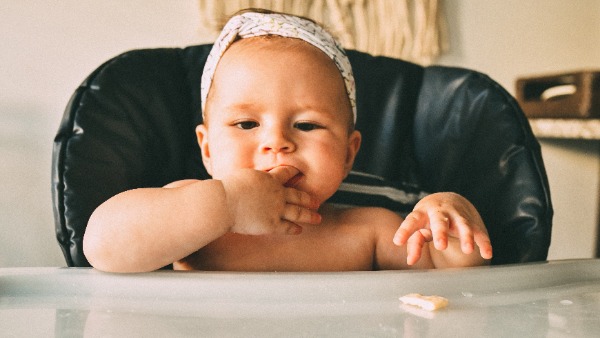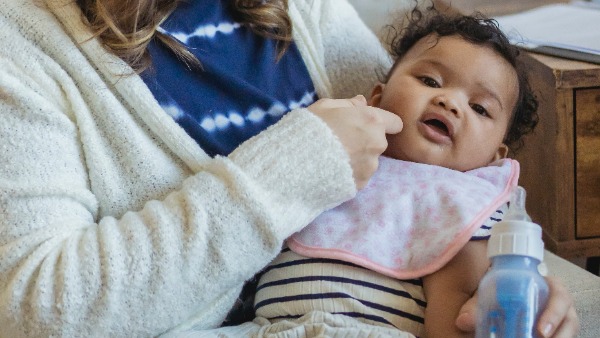Just In
- 1 hr ago

- 8 hrs ago

- 9 hrs ago

- 13 hrs ago

Don't Miss
- Education
 WBCHSE introduces semester system in state-run schools, Know more
WBCHSE introduces semester system in state-run schools, Know more - Sports
 Pakistan vs New Zealand 2nd T20I Match Preview, Key Players, Injury Update, Squad, Other Details
Pakistan vs New Zealand 2nd T20I Match Preview, Key Players, Injury Update, Squad, Other Details - News
 Andhra Pradesh CM Jagan Mohan Reddy Says Pawan Kalyan Dances To Chandrababu Naidu's Tunes
Andhra Pradesh CM Jagan Mohan Reddy Says Pawan Kalyan Dances To Chandrababu Naidu's Tunes - Movies
 When Karan Johar Revealed Sara Ali Khan And Janhvi Kapoor Once Dated Siblings On KWK 7, Guess Who?
When Karan Johar Revealed Sara Ali Khan And Janhvi Kapoor Once Dated Siblings On KWK 7, Guess Who? - Finance
 Reliance, ONGC, Tata, Adanis: Energy Stocks Didn't Get The Memo Of Bears, Up 12% In 30-Days; 10 Stocks To BUY
Reliance, ONGC, Tata, Adanis: Energy Stocks Didn't Get The Memo Of Bears, Up 12% In 30-Days; 10 Stocks To BUY - Automobiles
 Suzuki Swift Hatchback Scores 4 Star Safety Rating At JNCAP – ADAS, New Engine & More
Suzuki Swift Hatchback Scores 4 Star Safety Rating At JNCAP – ADAS, New Engine & More - Technology
 Dell Introduces AI-Powered Laptops and Mobile Workstations for Enterprises in India
Dell Introduces AI-Powered Laptops and Mobile Workstations for Enterprises in India - Travel
 Journey From Delhi To Ooty: Top Transport Options And Attractions
Journey From Delhi To Ooty: Top Transport Options And Attractions
Drooling In Babies: Causes, Benefits, Complications, Treatments And How To Manage
Drooling is defined as an unintentional loss of saliva from the mouth. It usually starts when babies reach three months of age and occurs in most healthy children who are under two years of age. Also, some babies may drool a lot while some very little.

Drooling is common in babies during their phase of growth and development. However, excessive drooling, also known as sialorrhea can be an indication of some neurological conditions such as cerebral palsy. [1]
In this article, we will discuss details on drooling in babies. Take a look.

Causes Of Drooling In Babies
There are many causes of drooling in babies. Some of them include: [2]
- Teething
- Emotional stimuli such as crying.
- Limited ability to swallow.
- Intellectual disability.
- Lack of front teeth.
- Lesions in the oropharyngeal.
- Certain medications
- Gastroesophageal relax
- Family history of Wilson disease.
- History of Rett syndrome
- Sour of spicy foods.
- Nausea
- Central nervous system and muscular disorders such as cerebral palsy, myasthenia gravis and facial nerve palsy. [3]
Note: Drooling usually disappears by the age of two due to the physiological maturity of oral functions. If your baby still drools after the age of two, consult a medical expert.

Why Drooling In Babies Is Considered Important
Drooling in babies is often linked to their healthy growth and development. Studies say that drooling indicates:
- Healthy development of a baby's digestive system
- Sign of teething [4]
- Development of sense of smell
- Facilitation of swallowing
- Development of baby's salivary glands
Effective Natural Remedies For Teething In Babies
Complications Of Drooling In Babies
If drooling in babies get severe and does not stop by the age of two, it may cause complications such as: [5]
- Embarrassment and discomfort
- Emotional impairment during childhood
- Unhygienic conditions such as foul odours from the mouth.
- Soiling of clothes, books and toys due to excessive saliva.
- Social isolation and rejection which may, in turn, increase the risk of depression in children.
- Chapped or softened facial skin
- Drool rash
- Transmission of infection
- Loss of fluids and electrolytes, making the baby prone to dehydration.
- Impaired chewing function
- Impaired communication skills
All About Ringworm: Causes, Symptoms, Risk Factors, Diagnosis, Treatments And Prevention
Diagnosis Of Drooling In Babies
Diagnosis of excessive drooling in babies can be carried out by the following methods:
- General examination: It includes looking for the vital signs such as rate of drooling, physical development of the baby, an inspection of wetness and staining and tongue-control in the baby.
- Associated signs: After the general examination, the medical expert may lookout for signs of intellectual disability, infections of the mouth, fever, toxicity, muscle functions and other physical and mental dysfunctions, including a family history of certain diseases such as Wilson disease, that could be causing drooling in babies. [6]

Treatment Of Drooling In Babies
Some of the treatment or management methods for drooling in babies may include:
- Medication: Some medicines or injections such as botulinum toxin A can help treat excessive drooling in babies, especially if it is caused due to cerebral palsy. [7]
- Surgical management: When medications and other interventions to treat drooling in child fails, surgical methods such as salivary duct relocation and salivary duct ligation is suggested. [8]
- Physiotherapy: It includes training or behavioural therapy to improve sensory and physical functions such as jaw stability and closure, lip closure and tongue stability to reduce episodes of drooling. [9]
Benefits Of Pomegranate For Babies: When To Introduce And Things To Remember
Management Of Drooling At Home
- Keep a soft cloth or tissues handy and wipe the baby's face with it to prevent the development of rashes.
- With a damp cloth clean the baby's face after feeding.
- It is good to just use water to wipe the drool on the baby's face and avoid using any harsh soap or rubbing.
- Using absorbent drool bib to prevent saliva from soiling the clothing.
- Getting a teething toy for your baby if they start drooling excessively due to teething.
To Conclude
Drooling can be problematic for both the baby and the caregiver. If you notice excessive drooling in your baby for a prolonged period, consult a medical expert for early diagnosis and treatment.
- What does it mean when a baby starts drooling?
A baby normally starts drooling by the age of three months due to several reasons. Some of the developmental causes may include limited ability to swallow, physiological causes such as teething and consumption of spicy or sour foods, and familial dysautonomia such as Riley-Day syndrome.
- How can I stop my baby from drooling?
Some medications such as botulinum toxin A and surgical methods such as salivary duct relocation can help stop the baby from drooling. There are also many physiotherapies that may help in jaw and lip stability and closure to prevent drooling. You can manage the condition by keeping a cloth or tissue handy and wiping the saliva at regular intervals.
- Why does my four-month-old drool so much?
Drooling usually starts by the age of three months, therefore, chances are that a four-month-old may drool a lot. Mild drooling could be due to teething, however, if your baby does not stop drooling even after two years, consult a medical expert.
- Is it normal for a baby to drool excessively?
Excessively drooling for a shorter period can be normal, however, drooling excessively for longer periods can be a sign of certain conditions such as cerebral palsy, mental retardation, lesions in the oropharyngeal, side effects of certain medications, gastroesophageal relax or family history of Wilson disease.
- When do babies start drooling?
Babies usually start drooling by the age of three months and may drool until two years of age. Drooling is considered to be a normal phase of babies growth and development that help in their teething phase, growth of the digestive system, maturation of sensory glands, development of salivary glands and facilitation of swallowing.
-
 insync100 Popular Hindu Baby Names For Girls And Boys That Start With The Letter M
insync100 Popular Hindu Baby Names For Girls And Boys That Start With The Letter M -
 pregnancy parentingExclusive: Born Too Soon! How Navigating Prematurity With Courage And Collaboration Saved A Little Girl
pregnancy parentingExclusive: Born Too Soon! How Navigating Prematurity With Courage And Collaboration Saved A Little Girl -
 pregnancy parentingExpert On Importance Of Screening Newborns For Lung Cancer
pregnancy parentingExpert On Importance Of Screening Newborns For Lung Cancer -
 fashionChildren's Day 2023: Bollywood Celebs Prefer Comfy And Cute Outfits For Their Babies, Get Inspired!
fashionChildren's Day 2023: Bollywood Celebs Prefer Comfy And Cute Outfits For Their Babies, Get Inspired! -
 pregnancy parentingHow To Calm An Irritable Baby In Under 1 Minute? Tips For New Parents
pregnancy parentingHow To Calm An Irritable Baby In Under 1 Minute? Tips For New Parents -
 pregnancy parentingVaginal Tears During Childbirth: How To Take Care Of It At Home?
pregnancy parentingVaginal Tears During Childbirth: How To Take Care Of It At Home? -
 pregnancy parentingTeenage Pregnancy: The Effect On Babies Mentally, Emotionally, Socially And Physically
pregnancy parentingTeenage Pregnancy: The Effect On Babies Mentally, Emotionally, Socially And Physically -
 pregnancy parentingSummer Baby Care: How To Avoid Dehydration In Babies
pregnancy parentingSummer Baby Care: How To Avoid Dehydration In Babies -
 babyIs Jaggery Safe For Babies? When Can You Start Giving Your Kid Jaggery?
babyIs Jaggery Safe For Babies? When Can You Start Giving Your Kid Jaggery? -
 babyWinter Soup For Babies: Benefits And 2 Recipes (Veg & Non-veg)
babyWinter Soup For Babies: Benefits And 2 Recipes (Veg & Non-veg) -
 babyAmazon Great Indian Sale On Baby Products: Car Seats, Carriers And Other Baby Travel Essentials
babyAmazon Great Indian Sale On Baby Products: Car Seats, Carriers And Other Baby Travel Essentials -
 pulseUnusual Names For Babies And Their Meanings
pulseUnusual Names For Babies And Their Meanings


 Click it and Unblock the Notifications
Click it and Unblock the Notifications



